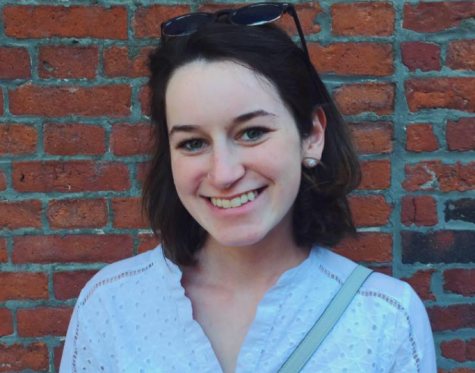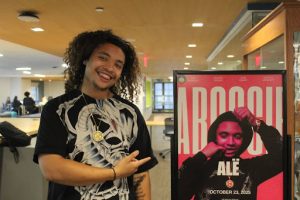Campaign Commentary: Super Tuesday hosts Suffolk turnout
March 2, 2016
On Tuesday, several states across the country cast their votes for the presidential primary, with nine states holding a primary, four holding Republican caucuses and one with a Democratic caucus.
Massachusetts held their semi-closed primary on Super Tuesday, and expectations in the state have centered on a win for former Secretary of State Hillary Clinton and Republican candidate Donald Trump.
In 2008, Clinton won Massachusetts by a reasonable margin against then Sen. Barack Obama.
For Democrats, the question was whether or not Clinton would win back the Massachusetts districts she did so well in eight years ago, or even gain more, against Sen. Bernie Sanders.
Clinton’s success over Obama during the last election is largely a result of her popularity with older voters. For example, voters over 45 years old largely supported Clinton, while younger voters readily supported Obama. With so many college students mainly backing Sanders, perhaps younger voters will have a strong enough voice to elect him.
Presidential primaries were not a trend until the early 20th century. Since then, most states have adopted some sort of mechanism for a primary election, resulting in a range of primaries and caucuses across the country.
An open primary, where the ballot is open to Republicans and Democrats regardless of their registered party, gives voters the opportunity to vote in one primary or the other. In a closed primary, a voter must register to vote with a party weeks, and sometimes months, in advance and can only vote in that designated primary.
Massachusetts, on the other hand, is one of very few states that holds a semi-closed primary, where a voter can go to the polls and vote for either the party they are registered for or the party of their choosing if they are “unenrolled.” In Massachusetts, being unenrolled, as 51 percent of the state’s voters are, means that a voter is not registered with a party.
Therefore, when an unenrolled voter casts their ballot, they enroll on the spot for either the Republican or Democratic party. After they vote, a voter can either decide to remain enrolled in their party of choosing, or they can request to be unenrolled again.
A selection of Suffolk students all affirmed that they are registered to vote. While these students confirmed they are registered as unenrolled, they all had an idea of which candidates they were voting for on Super Tuesday.
Nancy Pocoli, a freshman English major from Methuen, was excited to vote in the primary. Pocoli explained that she is interested in politics because “it affects me a lot.”
For some Suffolk students, it is less about a candidate’s party affiliation and more about who they actually are as a politician.
Jackie Pisano, a sophomore finance major from Revere, finds that it is about voting for a candidate “who is going to do the best job.”
A semi-closed primary gives voters who do not want to be restricted to one party more choices, which could happen in a closed primary. A semi-closed primary simultaneously restricts either Democrats from collectively voting for a weak Republican candidate or for Republicans from doing the same, which could happen in an open primary.
Sam Witts, a freshman communications major from Dracut, explained the freedom that comes with being unenrolled in semi-closed primaries.
“I wanted to leave my options open and not apply myself at such a young age to one party when I still have so much to learn about the mechanics of politics,” he said.






